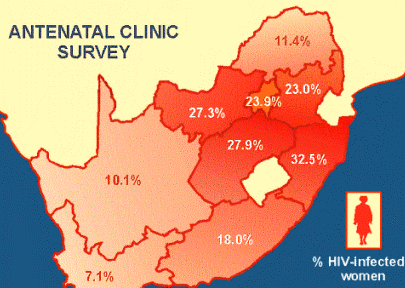Microbicide gel offers promising HIV prevention method for women
 Washington, March 6 : A vaginal microbicide gel has for the first time shown some promise to prevent HIV infection in women in a clinical trial involving more than 3,000 subjects in the U. S. and southern Africa.
Washington, March 6 : A vaginal microbicide gel has for the first time shown some promise to prevent HIV infection in women in a clinical trial involving more than 3,000 subjects in the U. S. and southern Africa.
While making a presentation on the trial's findings at the Conference on Retroviruses and Opportunistic Infections (CROI), the researchers said that one 0.5 per cent dose of a microbicide designed to prevent HIV from attaching to cells in the genital tract, was 30 per cent effective.
While the results of the study known as HPTN 035 are encouraging, the researchers behind it say that additional evidence is needed to determine more definitively its effectiveness.
"These findings provide the first signal that a microbicide gel may be able to prevent women from HIV infection," says Dr. Salim S. Abdool Karim, professor of clinical Epidemiology at Columbia University Mailman School of Public Health, pro vice-chancellor (research) at the University of KwaZulu-Natal in Durban, South Africa, and director the Center for the AIDS Program of Research in South Africa, who led the multi-center study for the U. S.-based Microbicide Trials Network (MTN).
"Indeed, for the millions of women at risk for HIV, especially young women in Africa, there is now a glimmer of hope. But these findings also indicate that more research is needed; we can''t yet say that we have an effective microbicide," he added.
Microbicides are substances intended to reduce or prevent the sexual transmission of HIV and other sexually transmitted infections when applied topically.
While various microbicides are being tested in clinical trials, none of them has ben approved for use as yet because previous trials have yielded disappointing results.
The study-conducted between February 2005 and September 2008, and involving 3,099 women at six sites in Africa and one in the U. S.-evaluated the safety and effectiveness of two candidate microbicides for preventing male-to-female sexual transmission of HIV.
"I am particularly impressed by and grateful to the women who took part in HPTN 035. "We have reached an important milestone in HIV prevention research, and these women deserve credit for the success of the study," said Dr. Sharon Hillier, vice chairman and professor, department of obstetrics and gynecology and reproductive sciences at the University of Pittsburgh School of Medicine, and MTN principal investigator. (ANI)